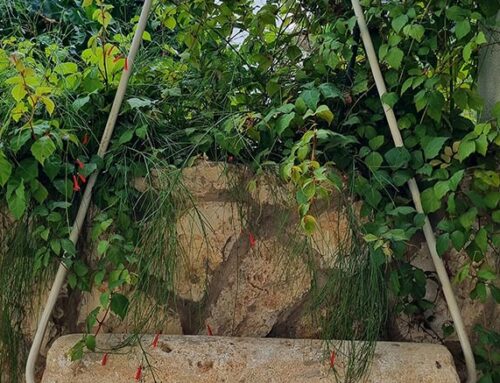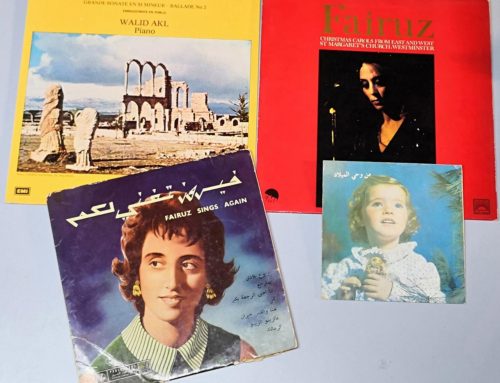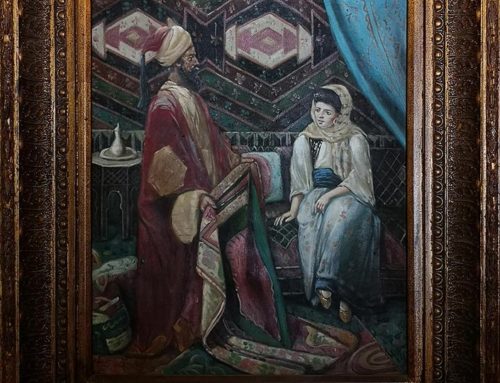Juhan – A novelette – Order the book
Introduction
Previously unpublished, Juhan is a welcome addition to the literary corpus of Lebanese-American writer Ameen Rihani (1876-1940), essayist, poet, novelist, and leading political proponent of Arab nationalism and independence from Ottoman rule. Rihani came into literary consciousness as a young dynamic thinker and activist at a time when his native Lebanon still suffered under the yoke of Ottoman control and increasing European interference. Like his contemporary friend and fellow artist Khalil Gibran, he was part of the great migration of Lebanese Mountain dwellers to the Americas. In the United States, Rihani developed, like Juhan, a hybrid cultural identity that would inform much of his subsequent political thought, most significantly his call for reform in the Middle East. Set during World War I, the novelette tells the story of a free-thinking Turkish woman represented as a “revolté” who seeks to translate the values of Western modernity into her own Muslim cultural context. Rihani is careful not to paint Juhan as a wholesale convert to Western thought, her European education and devotion to Nietzche notwithstanding, but rather as an individual seeking to address the challenge of the West while remaining true to her cultural and religious legacy.
And though European in mind, her father was consoled to find her still Mohammedan in spirit; and though French in her manner, she was Turkish in her taste and affections (p. 20-21).
In this sense, the novelette is emblematic of Rihani’s preoccupation, in his own life and fiction, with the assimilation of the cross-cultural encounter with the fabled East and West. As in Khalid, Rihani brings into one person the soul of the East and the mind of the West, and refuses any concession. He is a rebel against most of the customs, traditions, established axioms, conventions, and principles of the East as well the materialism, exploitation, and colonization of the West.
Juhan exemplifies the insistence for progress and reform and is thus a symbol of Rihani’s aspirations for gradual cultural, social, and political change. Her voice is meant to awaken the oppressed, inspire the lovers of freedom and illuminate the wise. If anything defines Juhan’s personal and political quest, as the novelette consistently tells us, it is her undying devotion to freedom, a value she deems universal and inalienable. In the context of her own time and culture, she sees her mission as bringing an end to two major problems confronting the Ottoman society: ignorance and religious fanaticism. She condemns the custom of the harim and vociferously defends the sanctity of monogamy as opposed to some religious tendencies granting men the right to take on several wives, but she is careful to present the adoption of this cultural value as a needed change emanating from within Turkish Ottoman history of which she is clearly a part. The damage done to women’s psyche by the harim, Juhan understands all too well having walked out on her own marriage after her husband took on a second wife.
In the opening frame of the novelette, we are introduced to an additional cast of male characters who play a pivotal role as Juhan’s foils, namely her father Ridha Pasha, a bureaucrat of the state representing class privilege and a decadent Ottoman cultural worldview; her distant cousin Shukri Bey, to whom her father wishes to see her married; and, most significantly, General Von Wallenstein, the German military helping hand to the struggling Turkish nation in wartime and also a suitor. The fact that Juhan’s intellectual formation is founded on German culture (she is in the process of translating Nietsche, her favorite author) makes the German General a crucial character. A quick reading would make of the father and the German General the equivalent of the opposition between East and West, but this opposition is problematized by Rihani as the plot progresses and Juhan emerges as a woman not easily classifiable in existing categories.
Because of her choices and actions, Juhan comes across as a more complex character than might at first appear. While unwavering in her belief in a woman’s right to freedom, again defined as the reform of the harim, she does not see in the General an idealized escape from a stifling cultural back-ground. It is clear that the General, for all of Germany’s cultural prowess, is far from a sympathetic character in Rihani’s text: his sexual overtures to Juhan are no better than a return to the value system of the harim, another form of (this time, Western) concubinage. On the other hand, her father’s insistence that she remarry, while initially opposed and solely devoted to freedom, softens as she comes to view Shukri Bey as a national, as opposed to patriarchal, choice.
Juhan’s personal complexity, the fact that she is able to stand at a critical distance from both East and West, and develop an individual personal philosophy, is further elaborated in the novel in surprising and unexpected ways. By transgressing the conventions of female morality, readers are stunned by the personal choices of a woman of her class and religious background. It is clear, however, that her unconventional behavior is outweighed by Rihani’s portrayal of her as a nationalist figure whose actions and devotion to the formation of a new, modern Muslim nation are beyond dispute. As the German General’s machinations remove Juhan’s brother, father, and Shukri Bey from her life, Juhan begins to see through the fog of war the General’s (and the West’s) less honorable intentions. Consequently, she ends up, as Khalid, an advocate of the New Nations, which unlike Plato’s Republic, is headed not by the Philosopher or the Poet but by what Rihani calls the “People’s Man”.
For she was producing her book, the New Nation and preparing for that nation one of her best sons – her greatest leader – inshallah, (p. 91).
In the end, Rihani’s novelette undoes the easy distinction between East and West, between tradition and modernity, in the very figure of Juhan, who manages in her own individual fashion to find an authentic path toward (national) self-fulfillment and progress. That Rihani himself was concerned with the challenge of the West, of the position of women at the dawn of the twentieth century, with Arab independence and unity in the wake of Ottoman decolonization, makes the novelette an important literary source both for an understanding of Rihani’s dual Lebanese-American identity and for the cultural, political, and social fervor that characterized the Levant in the early twentieth century. In addressing these concerns, the novelette continues to be relevant to our own contemporary period and quite consistent with Rihani’s concern with the phenomenon of reality. Its publication is, thus, a welcome addition to a more complex appreciation of the past with all its realities, and of Rihani himself as a prolific writer of manifold interests.
Professor Assad Eid, Vice President, Sponsored Research and Development, Notre Dame University-Louaize, Lebanon






